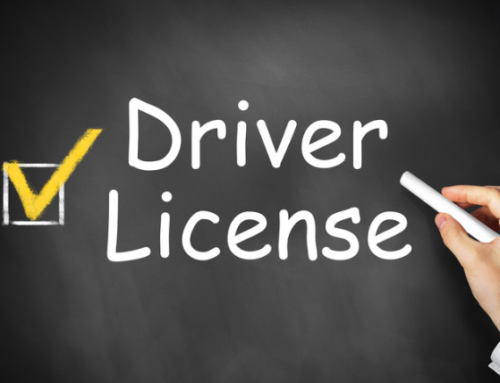Acquiring Auto Loans in Canada: Your Comprehensive Guide
Securing auto loans in Canada doesn’t have to be a daunting task. If self-financing your new vehicle isn’t an option, you’ve got three main routes to explore. Traditional bank or credit union loans, private personal loans from lenders, or even assistance from family and friends. The process might sound straightforward, but navigating it successfully requires some knowledge.
That’s where this ultimate guide to finding the best car loans in Canada comes into play. It’s designed to simplify the process of obtaining a car loan that fits your needs, whether you’re eyeing a brand-new vehicle or a quality used car.
Why Car Loans Matter
When you’re on the hunt for a vehicle that’s safe, fuel-efficient, and built to last, chances are it comes with a significant price tag. This is where a car loan can be an invaluable resource, making it possible for you to spread out the cost over a period of time, instead of forking out a large sum upfront.
The good news is that there is a plethora of lenders and dealerships across Canada eager to help you secure an affordable car loan. The key lies in knowing where to look. See Canada Auto Approval reviews.
Car Loans in Canada: Auto Loan vs. Personal Loan
It’s essential to distinguish between an auto loan and a personal loan. While both can be used to finance a car purchase, there’s a fundamental difference between the two.
An auto loan is specifically designed for financing a vehicle and is secured by the car itself. You can only use the borrowed money to purchase the vehicle, and the car serves as collateral, ensuring repayment.
On the other hand, a personal loan is not linked to the asset you’re buying. It’s an unsecured loan, and you’re free to use the funds for any purpose you desire.
Understanding the Costs Involved
Car loans help you spread the cost of your vehicle over several years through monthly installments. This effectively makes the car more affordable, sparing you from shelling out a substantial sum all at once.
However, it’s crucial to be aware of various costs and fees that may arise post-approval. These expenses can encompass:
-
Down Payment for Car Loans in Canada: While a down payment is typically optional, it’s often recommended, especially when purchasing a newer or pricier model. Experts suggest putting down at least 10% to 20% of the vehicle’s total price. A larger down payment not only reduces your debt amount and repayment duration but can also lead to lower interest rates. And possibly some extra perks from the dealer.
-
Interest Rates: Interest rates are what lenders charge for lending you money. The rate you secure can vary based on the lender, the type of vehicle you’re financing, and your financial situation. There are two primary types of interest rates:
a. Fixed Interest Rate: This remains constant throughout your repayment term, providing predictability in your monthly payments.
b. Variable Interest Rate: These rates fluctuate over time, often due to changes in Canada’s prime rate. While variable rates can make your monthly payments less predictable, they can save you money if the prime rate drops.
-
Car Loan Terms & Payments: The length of your loan term and the size of your monthly payments significantly impact the total cost of your vehicle. Bear in mind that the vehicle’s advertised price isn’t its final cost when you factor in interest and fees. A longer term with smaller payments may seem more affordable initially, but you’ll end up paying more in interest and fees. Conversely, larger payments can help you pay off the car faster, but you should ensure they align with your budget to avoid financial strain.
-
Additional Fees for Car Loans in Canada: Various fees are associated with car loans, and they can vary depending on where you apply and the terms of your loan agreement. Traditional lenders, such as banks, may charge administrative fees, including loan origination. Dealerships offering in-house financing may impose documentation, licensing, and pre-delivery fees. It’s important to inquire about these fees before finalizing any contracts.
Where to Seek Car Loans in Canada
Thankfully, Canada offers a variety of places where you can apply for car loans. Each lender or dealership comes with its unique advantages, drawbacks, and approval requirements, so be sure to conduct thorough comparisons before making a decision. Here are a few common avenues:
-
Online Subprime Auto Lenders:
- An increasing number of car loan transactions are now conducted online, and many subprime auto lenders have user-friendly websites for account creation, applications, and payments. This is an excellent option if you have less-than-ideal credit or lower income, as the requirements are often more lenient.
-
Banks and Credit Unions:
- Traditional financial institutions like banks and credit unions offer car loans. While they generally provide more security and competitive rates, borrowers with weaker financial profiles may find it challenging to get approval.
-
Car Dealerships:
- Many dealerships offer in-house financing, which allows you to pay them directly without applying for a separate loan. While car dealerships may have less stringent approval requirements to make a sale, they may charge slightly higher rates.
Application Requirements
While each lender and dealership may have their specific loan requirements, there are common personal and financial details you should be prepared to provide:
-
Personal Information: Name, address, and other identification details for proof of identity.
-
Financial Information: Bank account details and income verification to demonstrate your ability to repay the loan.
-
Employment Status: Your job status and job title.
-
Vehicle Details (if applying with a bank or lender): Make, model, and cost of the vehicle you plan to purchase.
-
Down Payment Amount: Specify the down payment, if any.
Credit Check Considerations
While some lenders and dealerships might not place as much emphasis on credit scores, they could still check your credit report. Therefore, it’s essential to understand that a stronger credit profile can result in better interest rates and more favorable repayment terms. Your credit score has a significant impact on your loan eligibility and the overall cost of your car loan.
Preparing for a Car Loan Application
Securing the best car loan is all about your financial health. The more confidence lenders have in your ability to make timely payments, the more favorable your loan terms will be. To enhance your chances of approval and secure a car loan with better conditions, consider the following preparations:
-
Improve Your Credit: If your credit score is less than ideal, work on improving it. A credit score ranging from 660 to 800 is considered ideal for securing better interest rates and terms.
-
Stable Employment: Having a stable, full-time job for at least six months enhances your application’s credibility.
-
Income Adequacy: Ensure your income is sufficient to comfortably afford the monthly payments.
-
Manage Debt: Pay off any outstanding debts to improve your financial profile.
-
Save for a Down Payment: Accumulate a reasonable down payment to reduce the loan amount and duration.
-
Vehicle Choice: Decide on the make and model of the vehicle you want to purchase.
-
Valid Driver’s License: Ensure your driver’s license is up to date.
Considering a Cosigner
If your financial situation or credit history isn’t strong enough to secure a car loan, consider strengthening your application by finding a cosigner. A cosigner provides the lender with assurance that the loan will be repaid, even if you are unable to make payments. However, it’s essential to be cautious, as your cosigner’s finances and credit could be adversely affected if they become responsible for the loan but are unable to meet the payments.
Tips for Finding the Best Car Loan Deal
When it comes to securing the best car loan deal in Canada, consider these tips:
-
Compare Lenders/Dealerships: While the excitement of getting your car might be compelling, resist the urge to choose the first lender or dealership you come across. Take the time to research different options in your area, so you can find the right vehicle, interest rate, and repayment plan that aligns with your financial situation.
-
Explore No-Credit-Check Options: If bad credit is a concern, you may find car loan sources that don’t require credit checks. While interest rates might be slightly higher, this can help you avoid excessive hard inquiries on your credit report, which can negatively impact your credit score.
-
Borrow Responsibly: Avoid borrowing more than you can afford. Consider making a larger down payment to reduce the debt amount and potentially qualify for a lower interest rate, as lenders take on less risk.
-
Offer Collateral: Some lenders allow you to apply for a secured car loan, using one of your assets as loan security. This provides lenders with assurance and can lead to better terms, although they may have the right to seize your asset if you miss too many payments.
-
Consider Newer Vehicles: Although they may come with a higher initial cost, vehicles that are less than two years old often come with better rates, as the lender or dealership perceives less risk. Additionally, newer vehicles tend to be more reliable and cost-effective in the long run.
Seeking the Best Car Loans in Canada
If you’re searching for the best car loans in Canada, Canada Auto Approval can simplify your search. Whether you’re aiming to finance a used car, truck, van or SUV, we can connect you with the right lenders and dealerships in your region.
Car Loan FAQs
-
Can I get a car loan for a used car?
- Yes, car loans can be applied to almost any vehicle. However, if you’re looking to finance a relatively inexpensive used car from a private seller, it might be more practical to save up and purchase it outright to avoid additional costs.
-
Are down payments mandatory for car loans in Canada?
- Typically, down payments are optional when financing a car, but it’s generally recommended. Putting down at least 10% to 20% can significantly reduce the vehicle’s final cost and the duration of your debt. A larger down payment can also improve your loan conditions and interest rates.
-
Will a car loan affect my credit?
- The impact on your credit depends on the lender or dealership you choose. Many lenders and dealerships report their clients’ payment activity to credit bureaus. If your chosen lender reports to a credit bureau, making on-time and full payments will gradually improve your credit. However, late, short, or missed payments will have the opposite effect, damaging your credit and making you appear as a riskier borrower.

















